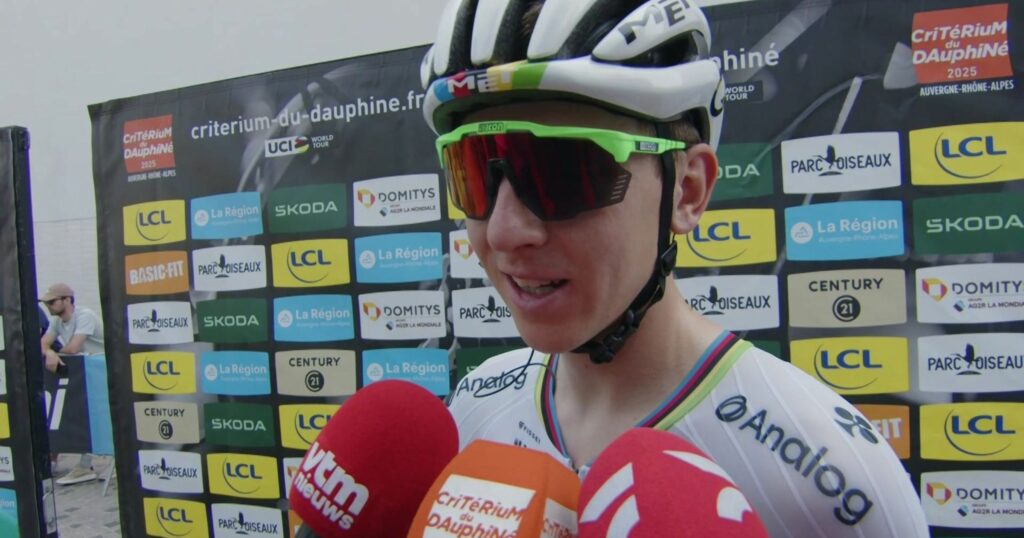The Critérium du Dauphiné is a significant event on the cycling calendar, often seen as a precursor to the Tour de France. This year’s edition has not been without its share of drama and notable performances. One of the standout narratives has been that of Belgian rider Remco Evenepoel, who has been dazzling spectators and competitors alike with his exceptional prowess on the bike. His performance in Stage 4 has drawn attention, leaving an indelible impression on the cycling community.
Tadej Pogačar, the Slovenian cyclist who embodies the spirit of modern cycling, expressed his disappointment after losing time on the same stage. The stage, with a distance that challenges even the best, has been a critical turning point for many riders in the competition. Pogačar, known for his climbing ability and tactical expertise, had hoped to capitalize on his strengths, but the commanding performance of Evenepoel left him trailing and unable to maintain his position within the top contenders.
Evenepoel’s performance during the day was nothing short of dominant. He exhibited not only physical strength but also an uncanny ability to read the race. His strategy was precise, allowing him to surge ahead and put significant time between himself and would-be challengers. Observers noted that Evenepoel is operating on another level compared to his rivals. The comparisons have been quite stark, with many analysts commenting on the combination of skill, endurance, and mental fortitude that the young Belgian cyclist brings to each stage he competes in.
Stage 4 unfolded in a manner that was both thrilling and suspenseful. The route, which featured a series of challenging climbs and technical descents, has been particularly unforgiving. Pogačar, who had been a strong contender in the earlier stages, did not expect the intensity that Evenepoel and other competitors would bring. While Pogačar is often praised for his resilience, this stage served as a reminder of the unpredictability of professional cycling. It is a sport where every pedal stroke counts; thus, a single miscalculation can lead to substantial losses in time and position.
Moreover, the aftermath of Stage 4 has ignited conversations around the strategies teams might adopt as they move forward in the competition. Pogačar’s team, UAE Team Emirates, will likely reassess their approach, particularly regarding how they protect their leader and manage his energy in the remaining stages of the Critérium. The dynamics within the team and how they respond to setbacks will be crucial as the race progresses.
In a post-race interview, Pogačar admitted to feeling “disappointed” about the day’s result. He is always eager to improve and demonstrate his abilities, yet this stage has been a lesson in humility and the sheer unpredictability of cycling. For Pogačar, it remains essential to focus on the overall classification while also learning from the experience of not performing as expected in a singular stage.
As the Critérium moves forward, all eyes will remain fixed on Evenepoel and Pogačar, among others, as they battle it out. The psychological games, combined with the physical demands of the sport, make for an exciting spectacle. Cycling enthusiasts and traditionalists alike are eager to see whether Pogačar can reclaim lost time and mount a challenge against Evenepoel, who has firmly established himself as a formidable force in the peloton.
With the backdrop of the stunning Alpine landscapes, the competition continues to capture the heart of many, reinforcing the idea that each stage will bring fresh challenges and opportunities for glory. The Critérium du Dauphiné is far from over, and the remaining stages promise to be just as thrilling, with the potential for surprising twists and turns as the best cyclists push their limits in pursuit of victory.



